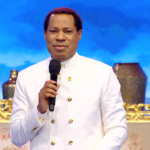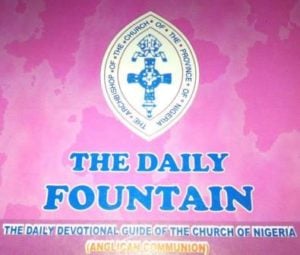Liturgical Readings for : Saturday, 6th January, 2024
06-01 The Epiphany of the Lord
This is the day Jesus first manifested himself as our Messiah, Redeemer and Saviour of Israel and the world. It celebrates three early moments when he reveals his role as The Son of the Lord. (1)The wise ones come to adore him, (2) his prophetic Baptism by John and (3) his ability to use signs and miracles to emphasise his role.
FIRST READING
A reading from the prophet Isaiah 60:1-6
Above you the Glory of the Lord appears
Arise, shine out Jerusalem, for your light has come, the glory of the Lord is rising on you,
though night still covers the earth and darkness the peoples.
Above you the Lord now rises and above you his glory appears.
The nations come to your light and kings to your dawning brightness.
Lift up your eyes and look round: all are assembling and coming towards you,
your sons from far away and your daughters being tenderly carried.
At this sight you will grow radiant, your heart throbbing and full;
since the riches of the sea will flow to you, the wealth of the nations come to you;
Camels in throngs will cover you, and dromedaries of Midian and Ephah;
everyone in Sheba will come, bringing gold and incense and singing the praise of the Lord.
The Word of the Lord. Thanks be to God.
Responsorial Psalm Ps 71
Response All nations shall fall prostrate before you, O Lord.
1. O God, give your judgement to the king, to a king’s son your justice,
that he may judge your people in justice and your poor in right judgement. Response

2. In his days justice shall flourish and peace till the moon fails.
He shall rule from sea to sea,
from the Great River to earth’s bounds. Response
3. The kings of Tarshish and the sea coasts shall pay him tribute.
The kings of Sheba and Seba shall bring him gifts.
Before him all kings shall fall prostrate,
all nations shall serve him. Response
4. For he shall save the poor when they cry and the needy who are helpless.
He will have pity on the weak and save the lives of the poor. Response
SECOND READING
A reading from the letter of St Paul to the Ephesians 3:2-3. 5-6
It has now been revealed that pagans share the same inheritance.
You have probably heard how I have been entrusted by God with the grace he meant for you, and that it was by a revelation that I was given the knowledge of the mystery. This mystery that has now been revealed through the Spirit to his holy apostles and prophets was unknown to any men in past generations; it means that pagans now share the same inheritance, that they are parts of the same body, and that the same promise has been made to them, in Jesus Christ, through the gospel.
The Word of the Lord. Thanks be to God
Gospel Acclamation
Alleluia, alleluia!
We saw his star as it rose and have come to do the Lord homage.
Alleluia!
GOSPEL

A reading from the holy Gospel according to Matthew 2:1-12
We saw his star and have come to do the king homage.
After Jesus had been born at Bethlehem in Judaea during the reign of King Herod, some wise men came to Jerusalem from the east.
‘Where is the infant king of the Jews?’ they asked.
‘We saw his star as it rose and have come to do him homage.’
When King Herod heard this he was perturbed, and so was the whole of Jerusalem. He called together all the chief priests and the scribes of the people, and enquired of them where the Christ was to be born.
‘At Bethlehem in Judaea,’ they told him ‘for this is what the prophet wrote:
‘And you, Bethlehem, in the land of Judah,
you are by no means least among the leaders of Judah,
for out of you will come a leader who will shepherd my people Israel’.
Then Herod summoned the wise men to see him privately. He asked them the exact date on which the star had appeared, and sent them on to Bethlehem.
‘Go and find out all about the child,’ he said ‘and when you have found him, let me know,
so that I too may go and do him homage.’
Having listened to what the king had to say, they set out.
And there in front of them was the star they had seen rising; it went forward, and halted over the place where the child was. The sight of the star filled them with delight, and going into the house they saw the child with his mother Mary, and falling to their knees they did him homage.
Then, opening their treasures, they offered him gifts of gold and frankincense and myrrh. But they were warned in a dream not to go back to Herod, and returned to their own country by a different way.
The Gospel of the Lord. Praise to you, Lord Jesus Christ.
*************************************
Scripture Reflection 6th January, The Epiphany of the Lord Matthew 2:1-12
There is a tradition in certain parts of Latin America that on the feast of the Epiphany a small plastic baby Jesus is hidden in a cake baked specially for the feast day. The hiding of the plastic figure signifies the efforts to hide the child Jesus from the evil intentions of King Herod. As the cake is cut, the slicing knife represents the danger posed to the infant Jesus by the cruel king. In some places the tradition is that whoever gets the piece of cake with the small figure of Jesus is obliged to host the next family gathering on 2nd February, (the feast of the Presentation of the Lord.) In other places, the one who finds the plastic figure in his or her portion receives gifts from those present.
These traditions make tangible both the dangers that threatened the child Jesus as soon as he was born and the excitement of discovering the child Jesus, the son of Mary and Joseph, to be ‘Emmanuel’, ‘God-with-us’. If the danger posed to the child Jesus is represented by King Herod the excitement of discovering the child Jesus is expressed by the magi from the East who, on arriving to Bethlehem, fell to their knees to worship the infant king of the Jews and then offered him their gifts of gold, frankincense and myrrh.
Charles Dickens wrote a book entitled ‘A Tale of Two Cities’, based on the French revolution. One commentator has entitled the story we have just heard in the gospel reading, ‘A Tale of Three Cities’. There is Jerusalem, the city of Herod; there is Bethlehem, the city, or more the town, of David, where Jesus was born, and then the unnamed city in the East from where the visitors who sought the infant king of the Jews hailed.
The word ‘Epiphany’ means a showing forth, a setting in the light. Today we celebrate the good news that God showed forth his Son to all the nations, Jews and pagans alike. It is the pagan visitors from the unnamed city of the East who reveal to us how to respond to God’s showing forth of his Son, God’s gift of his Son. Jesus was born into a Jewish world and these visitors from the East were strangers in that world; they were outsiders. It often takes strangers, outsiders, to show us how to respond to God’s gift of his Son, how to appreciate the great riches of our faith, the presence of Christ in the Eucharist and in the other sacraments, the life-giving message of the Scriptures, in particular, the gospels. In recent years there has been a huge increase in the number of people coming to live among us from abroad, many of them from the East, from Eastern Europe and from much further East, the Far East, others from the South, from Africa. They often bring an enthusiasm and appreciation for the treasures of the faith, that, perhaps, we have lost somewhat. They have enriched the church by their readiness to share their gifts and energies with the church here in their adopted homeland.
Although in the emerging tradition of the church the visitors from the East have become kings and are portrayed as kings in our traditional cribs, they are not called kings in the gospel reading. They are called ‘magi’, translated as ‘wise men’. The term ‘magi’ referred to people who had special knowledge, experts in some field or other, and in the case of our magi, it would appear, experts in astronomy or astrology. The rising of a new star suggested to these ‘magi’ the birth of a new Jewish king, to whom they wished to do homage. They saw a new light and they chose to follow the light, wherever it led them. They represent all those, of whatever creed or persuasion, who seek to follow the light, the light of truth. The magi are the ancestors of all of us who seek the truth. It was their own natural skills of searching and interpreting the skies – their own natural knowledge and wisdom – that launched them on their search. Those natural gifts brought them to Jerusalem, but the gospel reading suggests that they needed the guidance of the Jewish Scriptures to direct them to Bethlehem where the infant king of the Jews would be found. Reason and the revelation of Scripture worked together to bring them to the Lord. Their profile in the gospels reminds us that our natural gifts of mind and reason need never be an obstacle to faith. The magi came to recognize that the brightest star of all was Christ the Lord; he was ‘light from light’, in the words of the Creed.
Jesus is God’s gift to all who seek the truth; he is not a gift for a select few. The figure of Herod in the gospel reading can symbolize the forces that work to prevent us finding the one for whom we long. We can encounter many obstacles on our journey towards the Lord of light and truth. Yet, the gospel reading also suggests that the obstacles will not ultimately prevail if we are faithful to our search for the true light. At our baptism, the light of Christ shone upon us and remains with us to enlighten every darkness and to lead us to our eternal home.
**************************************************
The Scripture Readings are taken from The Jerusalem Bible, published 1966 by Darton, Longman & Todd Ltd.














